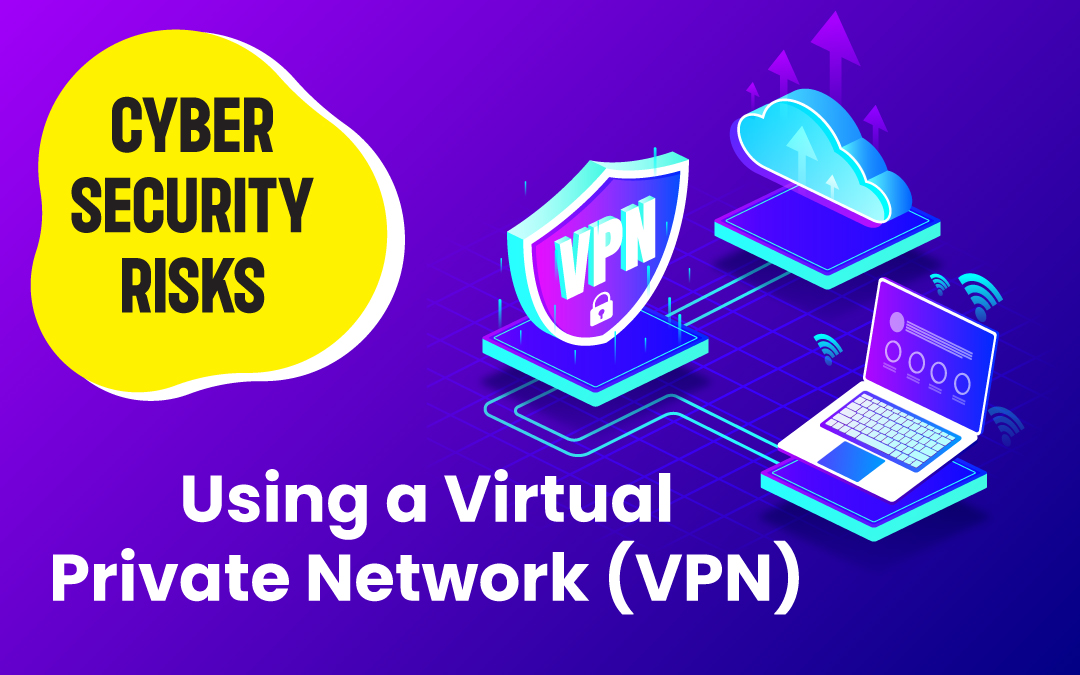
The modern digital landscape is fraught with cybersecurity risks that can compromise personal information, business data, and overall privacy. Utilizing a Virtual Private Network (VPN) can significantly reduce these risks, ensuring a safer online experience.
Protecting against data interception
One of the primary benefits of using a VPN is its ability to protect against data interception. When you connect to the internet through a VPN, your data is encrypted, making it unreadable to anyone who might try to intercept it. This is particularly important when using public Wi-Fi networks, which are often unsecured and a prime target for hackers. By encrypting your internet traffic, a VPN ensures that sensitive information such as login credentials, personal details, and financial transactions remain secure.
Preventing phishing attacks
Phishing attacks involve cybercriminals attempting to obtain sensitive information by pretending to be a trustworthy entity. While a VPN cannot prevent phishing emails from landing in your inbox, it can protect against more sophisticated forms of phishing that exploit network vulnerabilities. For example, a VPN can prevent man-in-the-middle attacks, where attackers intercept and alter communications between two parties. By securing your connection, a VPN ensures that you are communicating with the intended recipient, reducing the risk of falling victim to such scams.
Avoiding tracking and surveillance
Internet Service Providers (ISPs) and other entities can track your online activities through your IP address. This information can be sold to advertisers or even handed over to government agencies. A VPN masks your real IP address, making it difficult for ISPs and other third parties to monitor your browsing habits. This not only protects your privacy but also prevents targeted advertising and potential misuse of your data.
Mitigating the risk of malware infections
While a VPN is not a replacement for antivirus software, it can provide an additional layer of security against malware. Many VPNs, including Tuxler VPN, offer built-in malware protection that blocks malicious websites and downloads. By filtering out these threats before they reach your device, a VPN can reduce the risk of malware infections that could compromise your data or control your device.
Securing remote work connections
With the rise of remote work, employees often access company resources from various locations, sometimes over unsecured networks. A VPN provides a secure connection to the company's network, ensuring that sensitive business data is not exposed. This is crucial for protecting proprietary information and maintaining the integrity of business operations. VPNs also allow remote workers to access internal applications and databases, preventing unauthorized access securely.
Defending against identity theft
Identity theft is a growing concern in the digital age. Cybercriminals can steal personal information such as Social Security numbers, credit card details, and login credentials to commit fraud. A VPN encrypts your data, making it significantly harder for attackers to steal your identity. This encryption is especially vital when transmitting sensitive information over the internet.
Bypassing geo-restrictions and censorship
In addition to enhancing security, a VPN can help bypass geo-restrictions and internet censorship imposed by certain countries. This is particularly useful for accessing content that is blocked in your region, such as specific websites, streaming services, or social media platforms. By routing your connection through a server in a different location, a VPN allows you to access the internet freely and securely.
Enhancing overall online security
Combining a VPN with other cybersecurity measures, such as two-factor authentication (2FA) and regular software updates, can significantly enhance your overall online security. VPNs like Tuxler VPN offer high-level encryption and user-friendly features, making it easier to protect your data and maintain privacy. Regularly updating your VPN and other security software ensures that you are protected against the latest threats.
Conclusion
Using a Virtual Private Network (VPN) is a powerful tool for minimizing various cybersecurity risks. From protecting against data interception and phishing attacks to preventing tracking and enhancing remote work security, a VPN offers numerous benefits. By masking your IP address and encrypting your internet traffic, it ensures that your online activities remain private and secure. Incorporating a VPN into your cybersecurity strategy is essential for protecting personal and business data in today's digital world.
Share this post
Leave a comment
All comments are moderated. Spammy and bot submitted comments are deleted. Please submit the comments that are helpful to others, and we'll approve your comments. A comment that includes outbound link will only be approved if the content is relevant to the topic, and has some value to our readers.

Comments (0)
No comment